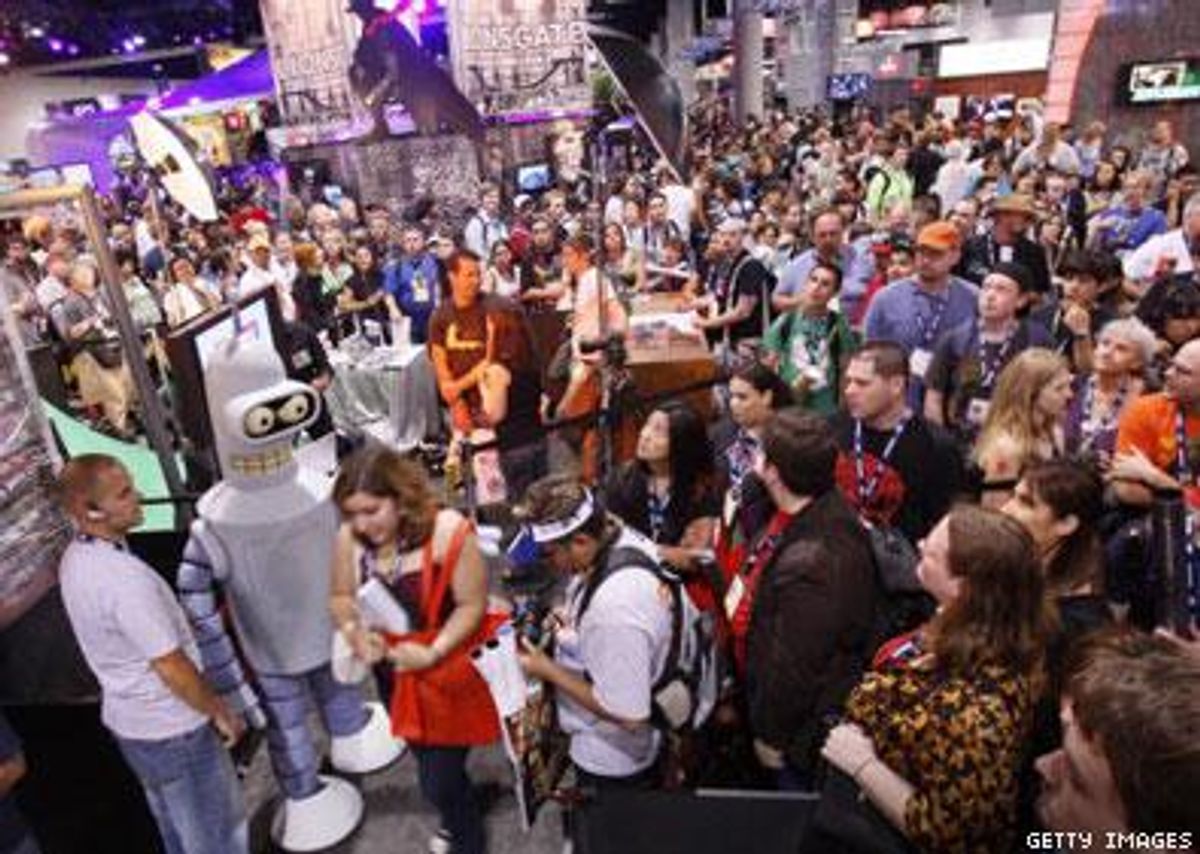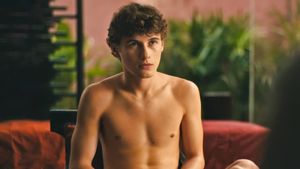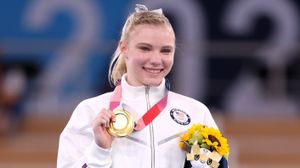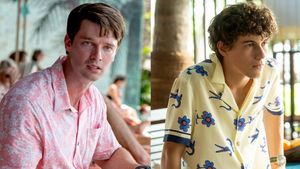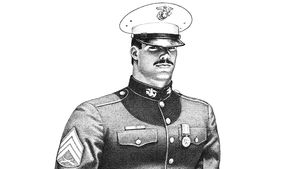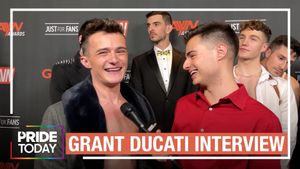There was a time when the most networking I did at the annual Comic-Con International in San Diego was to chat up the publicists for DC Comics and Fantagraphics Books. But this year I found myself in conversation with Simon Halls, a principal at PMK/HBH, a top publicity firm. Halls, at his first Comic-Con, wore a slightly overwhelmed expression on his face, like most other first-timers.
After all, the event drew in some 125,000 people a day, selling out all four days in advance, an unprecedented feat. I told Halls that the event had become "Nerd Sundance," and he retorted, "No -- it's Nerd Cannes."
And so it was. An event that once featured 300 comic book lovers crowding into a hotel basement has become an internationally recognized launching pad for many of the movies and TV shows you'll see over the next year. Watchmen was everywhere, of course -- the March release of the long-awaited film adaptation of the classic graphic novel started its hype parade with its trailer preceding The Dark Knight. But Comic-Con hyped everything from Joss Whedon's Dollhouse and Dr. Horrible's Sing-Along Blog (the latter starring Neil Patrick Harris as a would-be supervillain) and Alan Ball's HBO vampire series True Blood to such nongenre properties as Hamlet 2, Pineapple Express, and The Office.
Even if Hollywood vultures were swooping in to take advantage of an audience they don't really understand, it was interesting to see how media coverage of the event has changed. In years past camera crews would follow around the people dressed as Wonder Woman and Mr. Spock and chortle over the fact that adults were participating in such folly. This year I heard two press people chatting enthusiastically about the one-sheet posters for the upcoming Star Trek movie, and it dawned on me that coverage of the Comic-Con has changed for the same reason that coverage of queer issues has -- nerds, like LGBT journalists, have invaded the mainstream, and now we get some say in how our interests are portrayed. That's why you get reams of Entertainment Weekly coverage written by people who obviously follow these shows and movies religiously and write about them from a fan's perspective.
Comics legend Stan Lee made a surprise appearance at the "LGBT Portrayals in Comics" panel.
The gay presence at Comic-Con was substantial this year as well, and not just in the four "official" queer panels, three sponsored by Prism Comics. It seemed almost retrograde to hear the (21st!) annual "Gays in Comics" panel, moderated by Andy Mangels, go on about LGBT representation in mainstream superhero books when movers and shakers like Ball, Chip Kidd (Watching the Watchmen, Bat-Manga), John Barrowman (Torchwood), Jose Villarubia (Conan), Marc Andreyko (Manhunter, Ferryman), Ariel Schrag (The L Word), Bryan Fuller (Pushing Daisies), and Phil Jimenez (Infinite Crisis) were so front-and-center all weekend long in non-gay-specific panels. That's not even including the gay characters from The Sarah Silverman Program and Kevin Smith's upcoming Zack and Miri Make a Porno that turned up on panels and in film clips.
Big announcements were made, of course: Comics legend Stan Lee made a surprise appearance at Prism's "LGBT Portrayals in Comics" panel to reveal that he had made a deal with Perry Moore to adapt the latter's gay-superhero novel Hero. Even though these days, frankly, Lee produces way more announcements than finished products, the symbolic value of one of mainstream comics' key players reaching out to queer characters and readers is a huge deal. At the "Gays in Comics" panel, Wendy Pini of Elfquest fame told Con attendees that she's working queer characters into her next project, a graphic adaptation of Poe's "Masque of the Red Death." For my own personal brand of geekery, I was excited to learn that this fall's Mystery Science Theater 3000 20th anniversary boxed set will feature the DVD premieres of Werewolf, First Spaceship onVenus, Future War, and Laserblast as well as ancillary materials, including an MST3K reunion panel.
There was lots of ground to cover, and I certainly didn't get to see everything -- I heard rumors about people bursting into tears at the World of Warcraft Q&A, but I can't report on that firsthand -- so here are my highlights:
Best Dressed: Gay Age of Bronze cartoonist Eric Shanower's cream-colored suits always stand out on a convention floor packed with Batman T-shirts. Runner-up: Chip Kidd, whose sleek academic style I like to describe as "The Natty Professor."
Most Popular Costume: The Joker, almost all of them featuring the added facial scarring to reference the Heath Ledger version. Quite a few of them went that extra step and dressed as Joker nurses.
Best Song: It's a toss-up between Kristin Chenoweth belting out a verse and chorus of "Over the Rainbow" at the Pushing Daisies panel and cartoonist Lynda Barry promoting her wonderful and inspirational book What It Is by doing "You Are My Sunshine" without moving her lips.
Best Superhero Regimen: Patrick Wilson, who plays a retired, gone-to-seed, middle-aged Nite Owl in Watchmen, noted, "Everybody else had to get ripped. I could kick back with a carton of Haagen-Dazs and a couple beers and call it a day."
Most Enthusiastic Response: Kevin Smith, whom I ran into immediately after the Watchmen presentation, which featured some dazzling footage from the film: "Did you see that? Wasn't that fucking dope?"
Clearest Understanding of the Audience: When former Mystery Science Theater 3000 writer and performer Bridget Jones Nelson got mild applause after telling the audience she now goes to high schools to talk about Jesus, she responded, "Wow, Jesus got less applause than Joe Don Baker."
Most Refreshing Retort: When gay DC editor Bob Schreck and gay-adjacent comics writer Judd Winick (Green Arrow) talked about trying to insert queer characters into everything they do, Marc Andreyko responded, "Wow, I disagree with almost everything you're saying," adding that he adds LGBT characters when they're organic and not to make a statement. Andreyko also pointed out that he wanted the gay superhero Obsidian to be as average as possible. "I'm just a boring gay guy. I wanted a character who was just like me -- only better-looking and with superpowers."
